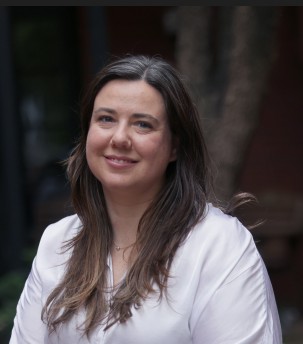Doctoral Programs
Need your questions answered?
Our doctoral programs prepare students to lead health care innovations and influence policy—founded on the science and theory of nursing, analytic principles, evidence-based practice, and strong leadership —at the highest organizational level. With access to world-renowned nursing faculty, cutting-edge facilities, and opportunities for interdisciplinary collaboration throughout the Johns Hopkins network, you’ll build the skills to develop and implement your research and clinical goals to change the future of healthcare.

find your path

DNP Advanced Practice
Become a nurse practitioner or nurse anesthetist in the DNP Advanced Practice track at Johns Hopkins Schoolof Nursing. Unlock the unlimited potential of an advanced nursing career and build close relationships with our world-renowned faculty. You will network with other emerging nurse leaders in your cohort and graduate ready to change the health care system and advance the nursing profession.
DNP Post-Master’s
Get the analytic skills and evidence-based practice principles you need in the DNP Post-Master’s track at Johns Hopkins. You’ll address significant healthcare problems-defined by your interests and based on your experience-in real time and in your practice setting. You will forge your own intellectual path and wrap up your curriculum with an intense final project experience.


PHD
Advance the theoretical foundation of nursing practice and healthcare delivery with a Johns Hopkins PhD in nursing. With access to world-renowned faculty, cutting-edge facilities, and opportunities for interdisciplinary collaboration with noted researchers throughout Johns Hopkins, you’ll build the skills to develop and implement a scientific research program. By graduation, most scholars have been awarded grants that continue their research and set them well on their way to a successful career.
Dual Degree Options
The dual degree programs offered through the Johns Hopkins School of Nursing integrate cutting-edge nursing in collaboration with schools from across the university. The programs will position you to take on executive roles that employ systems-level thinking to improve population health or lead patient care at corporate levels.

Do you know
The Difference?
| Comparison | DNP | PHD |
| Objectives | Prepares nurses at the highest level of nursing practice who will lead in applying and translating research into practice | Prepares nurses at the highest level of nursing science to conduct research that advances the empirical and theoretical foundations of nursing and health care globally |
| Competencies and Content | Knowledge and skills in applying and translating research into practice; leads dissemination and integration of new knowledge in health care organizations | Knowledge and skills in theoretical, methodological, and analytic approaches to the discovery and application of knowledge in nursing and health care |
| Program Outcome | Practice leaders such as an advanced practice nurse caring for individuals or other practice leadership positions in nursing such as health care administration | Nurse scientists prepared for a career in research in academia or other research-intensive environments focused on the design and testing of interventions to advance nursing and health care |
| Hopkins Program Hallmarks | An intense practice immersion experience with expert clinical faculty | An intense mentored research experience with a faculty investigator with an established funded program of research |
| Final Project | A practice application-oriented DNP capstone project | Completion and defense of an original research project |
“Prior to joining the PhD program, I felt like I was spinning my wheels. Now I feel empowered to advocate for what I know will help patients and have the tools and soon will have the credentials to do that.” Emily Hoppe
Emily Hoppe